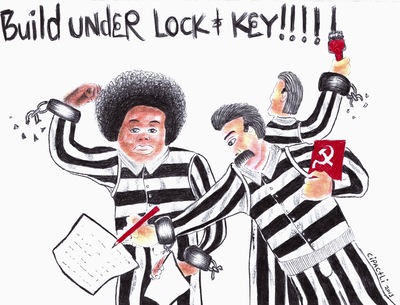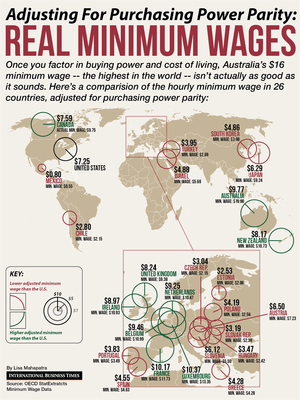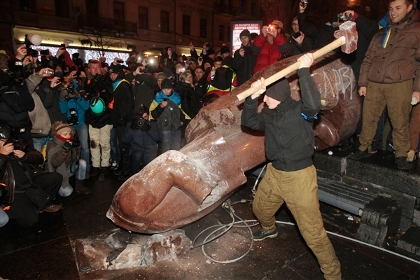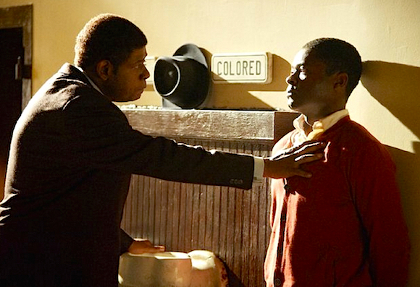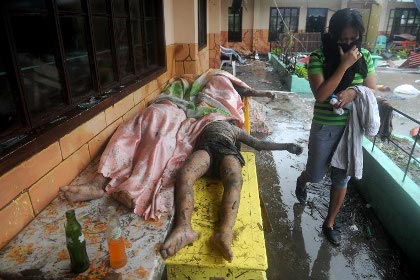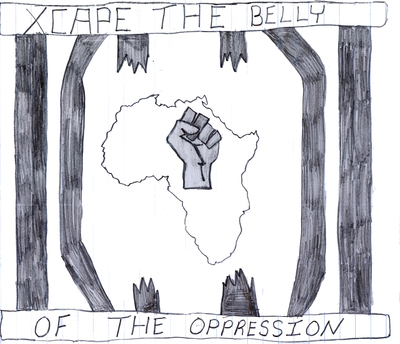
Reconciling Stalin with the Conditions of New Afrika Today
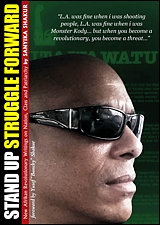
Stand Up, Struggle Forward: New Afrikan Revolutionary Writings On Nation, Class and Patriarchy
by Sanyika Shakur
Kersplebedeb, 2013Available for $13.95 + shipping/handling from:
kersplebedeb
CP 63560, CCCP Van Horne
Montreal, Quebec
Canada
H3W 3H8
While we recommended his fictional T.H.U.G. L.I.F.E., and his autobiographical Monster is a good read on the reality of life in a Los Angeles lumpen organization, Shakur’s third book is most interesting to us as it provides an outline of his political line as a New Afrikan communist.(1) Stand Up, Struggle Forward! is a collection of his recent essays on class, nation and gender. As such, this book gives us good insight into where MIM(Prisons) agrees and disagrees with those affiliated with the politics Shakur represents here.
At first glance we have strong unity with this camp of the New Afrikan Independence Movement (NAIM). Our views on nation within the United $tates seem almost identical. One point Shakur focuses on is the importance of the term New Afrikan instead of Black today, a position we recently put a paper out on as well.(2) Agreeing on nation tends to lead to agreeing on class in this country. We both favorably promote the history of Amerika laid out by J. Sakai in his classic book Settlers: the Mythology of a White Proletariat. However, in the details we see some differences around class. We’ve already noted that we do not agree with Shakur’s line that New Afrikans are a “permanent proletariat”(p.65), an odd term for any dialectician to use. But even within the New Afrikan nation, it seems our class analyses agree more than they disagree, which should translate to general agreement on practice.
Writings that were new to us in this book dealt with gender and patriarchy in a generally progressive and insightful way. Gender is one realm where the conservativeness of the lumpen really shows through, and as Shakur points out, the oppressors are often able to outdo the oppressed in combating homophobia, and to a lesser extent transphobia, these days. A sad state of affairs that must be addressed to improve our effectiveness.
Where we have dividing line differences with Shakur is in the historical questions of actually existing socialism. He seems to have strong disagreement with our sixth, and probably fifth, points of agreement for fraternal organizations. We were familiar with this position from his essay refuting Rashid of the New Afrikan Black Panther Party - Prison Chapter (NABPP-PC) on the questions of national independence and land for New Afrika.(3) The main thrust of Shakur’s article was right on, but he took a number of pot shots at Stalin, and was somewhat dismissive of Mao’s China, in the process. There is a legacy of cultural nationalism among New Afrikan nationalists that dismisses “foreign” ideologies. While making a weak effort to say that is not the case here, Shakur provides no materialist analysis for his attacks, which appear throughout the book.
Attacking Stalin and Mao has long been an important task for the
intelligentsia of the West, and the United $tates in particular. This
has filtered down through to the left wing of white nationalism in the
various anarchist and Trotskyist sects in this country, who are some of
the most virulent anti-Stalin and anti-Mao activists. It is a roadblock
we don’t face among the oppressed nations and the less institutionally
educated in general. From the sparse clues provided in this text we can
speculate that this line is coming from an anarchist tendency, a
tendency that can be seen in the New Afrikan revolutionary nationalist
formations that survived and arose from the demise of the Black Panther
Party for Self-Defense. Yet, Shakur takes up the Trotskyist line that
the USSR was socialist up until Lenin’s death, while accepting the
Maoist position that China was socialist up until 1976.(p.162) He says
all this while implying that Cuba might still be socialist today. A
unique combination of assessments that we would be curious to know more
about.
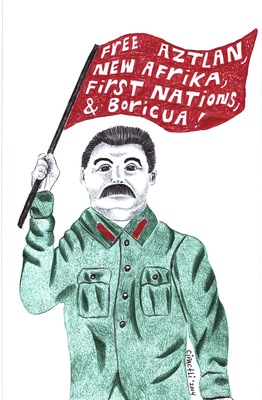
There is a difference between saying Mao had some good ideas and
saying that socialist China was the furthest advancement of socialism in
humyn history, as we do. Narrow nationalism uses identity politics to
decide who is most correct rather than science. While we have no problem
with Shakur quoting extensively from New Afrikan ideological leaders, a
failure to study and learn from what the Chinese did is failing to
incorporate all of the knowledge of humyn history, and 99% of our
knowledge is based in history not our own experiences. The Chinese had
the opportunity, due to their conditions, to do things that have never
been seen in North America. Ignoring the lessons from that experience
means we are more likely to repeat their mistakes (or make worse ones).
This is where (narrow) nationalism can shoot you in the foot. Maoism
promoted self-reliance and both ideological and operational independence
for oppressed nations. To think that accepting Maoism means accepting
that your conditions are the same as the Chinese in the 1950s is a
dogmatic misunderstanding of what Maoism is all about.
For those who are influenced by Mao, rather than adherents of Maoism, Stalin often serves as a clearer figure to demarcate our differences. This proves true with Shakur who does not criticize Mao, but criticizes other New Afrikans for quoting him. For Stalin there is less ambiguity. To let Shakur speak for himself, he addresses both in this brief passage:
“While We do in fact revere Chairman Mao and have always studied the works of the Chinese Communist Party and the People’s Revolution, We feel it best to use our own ideologues to make our own points. And We most certainly will not be using anything from old imperialist Stalin. He may be looked upon as a ‘comrade’ by the NABPP, but not by us.”(p.54)
For MIM(Prisons), imperialist is probably the worst epithet we could use for someone. But this isn’t about name-calling or individuals, this is about finding and upholding the ideas that are going to get us free the fastest. In response to a question about how to bring lumpen organizations in prison and the street together, Shakur states, “The most fundamental things are ideology, theory and philosophy. These are weaknesses that allowed for our enemies to get in on us last time.”(p.17) So what are Shakur’s ideological differences with Stalin?
Shakur’s definition of nation differs little from Stalin’s, though it does omit a reference to a common economy: “A nation is a cultural/custom/linguistic social development that is consolidated and evolves on a particular land mass and shares a definite collective awareness of itself.”(p.21) In his response to Rashid, Shakur attempts to strip Stalin of any credit for supporting the Black Belt Thesis, while sharing Stalin’s line on the importance of the national territory for New Afrika. Shakur opens his piece against Rashid, Get Up for the Down Stroke, with a quote from Atiba Shanna that concludes “the phrase ‘national question’ was coined by people trying to determine what position they would take regarding the struggle of colonized peoples – there was never a ‘national question’ for the colonized themselves.” While this assessment may be accurate for contemporary organizations in imperialist countries, these organizations did not coin the term. This assessment is ahistorical in that the “national question” was posed by Lenin and Stalin in much different conditions than we are in today or when Shanna wrote this. In fact, reading the collection of Stalin’s writings, Marxism and the National-Colonial Question, will give you an outline of how those conditions changed in just a couple decades in the early 1900s. It might be inferred from the context that Shakur would use the quote from Shanna to condemn “imperialist Stalin” for being so insensitive to the oppressed to use a term such as “the national question.” Yet, if we read Stalin himself, before 1925 he had explicitly agreed with Shanna’s point about the relevance of nationalism in the colonies:
“It would be ridiculous not to see that since then the international situation has radically changed, that the war, on the one hand, and the October Revolution in Russia, on the other, transformed the national question from a part of the bourgeois-democratic revolution into a part of the proletarian-socialist revolution.”(4)
This point is also central to his essay, The Foundations of Leninism, where he stated, “The national question is part of the general question of the proletarian revolution, a part of the question of the dictatorship of the proletariat.”(5) So Shakur should not be offended by the word “question,” which Stalin also used in reference to proletarian revolution and dictatorship of the proletariat. Clearly, “question” here should not be interpreted as questioning whether it exists, but rather how to handle it. So, in relation to Stalin at least, this whole point is a straw person argument.
On page 86, also in the response to Rashid, Shakur poses another straw person attack on Stalin in criticizing Rashid’s promotion of “a multi-ethnic multi-racial socialist amerika.” Shakur counter-poses that the internal semi-colonies struggle to free their land and break up the U.$. empire, and implies that Stalin would oppose such a strategy. Now this point is a little more involved, but again exposes Shakur’s shallow reading of Stalin and the history of the Soviet Union. Promoting unity at the highest level possible is a principle that all communists should uphold, and this was a challenge that Stalin put much energy and attention into in the Soviet Union. He was dealing with a situation where great Russian chauvinism was a barrier to the union of the many nationalities, and that chauvinism was founded in the (weak) imperialist position of Russia before the revolution. Russia was still a predominantly peasant country in a time when people had much less material wealth and comforts. While one could argue in hindsight that it would have been better for the Russian-speaking territories to organize socialism separately from the rest of the USSR, all nationalities involved were mostly peasant, and secondarily proletarian in their class status.(6) The path that Lenin and Stalin took was reasonable, and possibly preferable in terms of promoting class unity. Thanks to the Soviet experiment we can look at that approach and see the advantages and disadvantages of it. We can also see that the national contradiction has sharply increased since the October Revolution, as Stalin himself stressed repeatedly. And finally, to compare a settler state like the United $tates that committed genocide, land grab, and slavery to the predominately peasant nation of Russia in 1917… well, perhaps Shakur should remember his own advice that we must not impose interpretations from our own conditions onto the conditions of others. Similarly, just because Stalin clearly called for a multinational party in 1917, does not mean we should do so in the United $tates in 2014.(7)
While Stalin generally promoted class unity over national independence, he measured the national question on what it’s impact would be on imperialism.
“…side by side with the tendency towards union, there arose a tendency to destroy the forcible forms of such union, a struggle for the liberation of the oppressed colonies and dependent nationalities from the imperialist yoke. Since the latter tendency signified a revolt of the oppressed masses against imperialist forms of union, since it demanded the union of nations on the basis of co-operation and voluntary union, it was and is a progressive tendency, for it is creating the spiritual prerequisites for the future world socialist economy.”(8)
In conclusion, it is hard to see where Shakur and Stalin disagree on the national question. While upholding very similar lines, Shakur denies that New Afrika’s ideology has been influenced by Stalin. While we agree that New Afrika does not need a Georgian from the 1920s to tell them that they are an oppressed nation, Stalin played an important role in history because of the struggles of the Soviet people. He got to see and understand things in his conditions, and he was a leader in the early development of a scientific analysis of nation in the era of imperialism. His role allowed him to have great influence on the settler Communist Party - USA when he backed Harry Haywood’s Blackbelt Thesis. And while we won’t attempt to lay out the history of the land question in New Afrikan thought, certainly that thesis had an influence. We suspect that Shakur’s reading of Stalin is strongly influenced by the lines of the NABB-PC and Communist Party - USA that he critiques. But to throw out the baby with the bath water is an idealist approach. The Soviet Union and China both made unprecedented improvements in the conditions of vast populations of formerly oppressed and exploited peoples, without imposing the burden to do so on other peoples as the imperialist nations have. This is a model that we uphold, and hope to emulate and build upon in the future.
Having spent the majority of his adult life in a Security Housing Unit, much of this book discusses the prison movement and the recent struggle for humyn rights in California prisons. His discussion of the lumpen class in the United $tates parallels ours, though he explicitly states they are “a non-revolutionary class.”(p.139) His belief in a revolutionary class within New Afrika presumably is based in his assessment of a large New Afrikan proletariat, a point where he seems to agree with the NABPP-PC. In contrast, we see New Afrika dominated by a privileged labor aristocracy whose economic interests ally more with imperialism than against it. For us, to declare the First World lumpen a non-revolutionary class is to declare the New Afrikan revolution impotent. Ironically, Shakur himself embodies the transformation of lumpen criminal into revolutionary communist. While he is certainly the exception to the rule at this time, his biography serves as a powerful tool to reach those we think can be reached, both on a subjective level and due to the objective insights he has to offer.
One of the points Shakur tries to hit home with this book is that the oppressors have more faith in the oppressed nations ability to pose a threat to imperialism than the oppressed have in themselves. And we agree. We see it everyday, the very conscious political repression that is enacted on those in the U.$. koncentration kamps for fear that they might start to think they deserve basic humyn rights, dignity, or even worse, liberation. We think this book can be a useful educational tool, thereby building the confidence in the oppressed to be self-reliant, keeping in mind the critiques we pose above.
Related Articles:This article referenced in:








